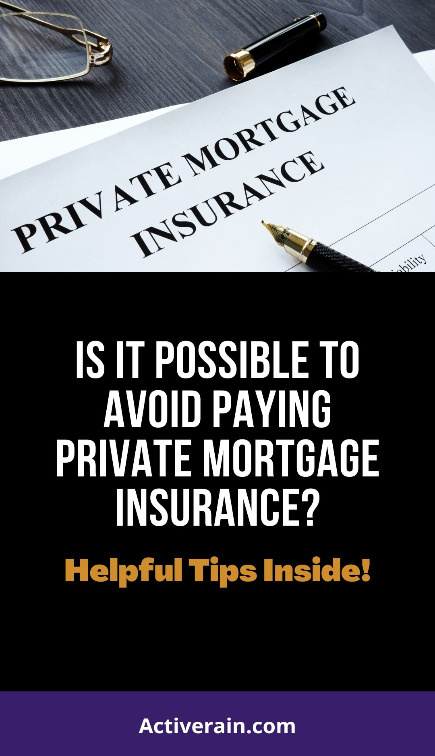If you buy a home for the first time, you might be surprised by some of the costs you must pay. Private mortgage insurance (PMI) is an ongoing monthly expense when you have a mortgage and put down less than a 20 percent down payment.
What is PMI?
The borrower pays private mortgage insurance, but it mostly benefits the lender. It protects the lender from losing out if the borrower defaults and enters foreclosure.
If you have 20% equity in the home, the lender won’t require this insurance to cover their risk. Buying a home means you need a 20% down payment, which could be a significant amount.
Paying PMI does allow you to put less down, but it adds to your monthly outgoings. PMI could be more than 2% of the loan amount each year, depending on your credit score and down payment amount.
This could be $6,000 for a loan of $300,000 with a PMI of 2% or an extra $500 a month on top of your regular mortgage payments.
You will continue to pay this PMI premium until you have at least 20% equity in the home. However, if you want to avoid private mortgage insurance, you have some options.
Many potential home buyers want to know how to avoid PMI. Private mortgage insurance is a significant expense that doesn't offer any benefits, so it is easy to understand why.
How to Avoid PMI?
If you're wondering how to avoid paying PMI, we have some options that could suit your situation:
Find a Loan That Doesn’t Need PMI
Some home loans don’t require PMI, while others might waive it or offer down payment assistance. If you are currently, were previously, or had a spouse in the military, you could apply for a VA loan that doesn’t require private mortgage insurance.
The FHA and the USDA have programs that should make the home buying more affordable for lower-income families.
FHA loans do not have private mortgage insurance like conventional ones but have a mortgage insurance premium (MIP).
The most significant benefit will be a low 3.5% down payment and lower credit score requirements to buy.
When getting a mortgage understanding the program that fits your specific needs will be essential.
Higher Interest Rates
You might be able to find a lender that will waive the requirement for PMI in exchange for a higher interest rate on the loan.
Doing so can help you buy the home without a 20% down payment, but you will still pay more monthly. This will mean higher interest rates for longer than you would have paid PMI.
Most of the time, choosing this option does not work out well. It is one of many first-time home buyer mistakes you may want to avoid.
80/10/10 Loans
Since a down payment of 20% removes the requirement for PMI, if you can get another loan to cover the shortfall, you won’t have to pay.
An 80/10/10 loan allows you to buy a home with a 10% down payment and take a home equity line of credit for the other 10%. This gives you a 20% down payment, so you won’t pay PMI on the 80% loan-to-value mortgage.
The equity line of credit will probably be adjustable, so it will be more expensive, and you will want to pay it off faster. A second loan will mean more fees, so the savings might not be as good as you expect over just paying PMI.
Homebuyer Assistance Programs
There are state and local assistance programs that could make your home purchase more affordable. Some communities offer programs designed to assist buyers in particular occupations.
These programs often target first responders, teachers, and people working in professions that are needed in the community.
Details of these programs can be found on the HUD website for your area.
Lower Your Sights
Even if you are preapproved for a certain amount, you don’t have to spend all of this money. If you instead decide to buy a cheaper home, it will be easier to save for the down payment.
The mortgage and PMI payments will be more manageable if you don’t stretch your finances as far. By purchasing a less expensive home, you can potentially avoid PMI.
The Bottom Line on Avoiding PMI
Buying a home without a 20% down payment might allow you to buy sooner, but it will mean you have more to pay each month. Waiting until you have saved enough to buy with 20% down will help you avoid these extra costs and allow you to buy at a better time.
While you might not like waiting, having 20% will put you in a better situation when applying for a mortgage. It could mean you receive better terms on the loan and leave you in a better financial situation in the long term.
Buying a home comes with significant financial responsibilities. Don't do it until you're ready financially.




Comments (3)Subscribe to CommentsComment